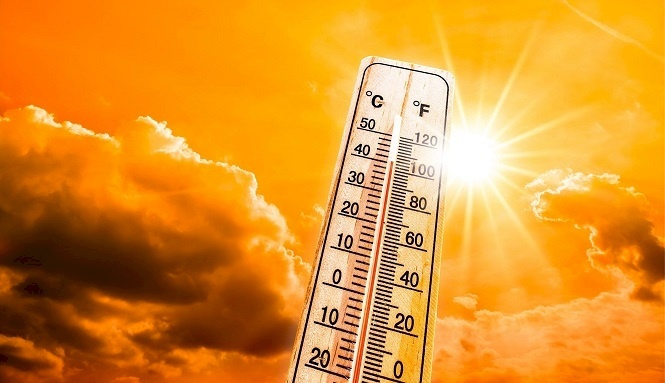
Study: Extreme Heat Affects Mental Health
SadaNews - Modern science has proven that climate changes and weather fluctuations are among the most serious threats to human health in the twenty-first century. It has also shown that extreme weather conditions such as extreme heat, tropical storms, heavy rains, floods, wildfires, and drought can affect a person's mental health. People living in impoverished neighborhoods or primitive rural areas are likely to be the most affected by climate shocks, especially since many of them lack access to sufficient clean water, food, and healthcare.
For his part, researcher Cyprian Moisture, a psychologist and health economics expert at the Universities of Dublin and Trinity in Ireland and Aga Khan in Pakistan and Kenya, noted that many studies examining the relationship between climatic changes and the deterioration of mental health were conducted outside the African continent. He emphasized the need for research to enhance the understanding of this issue from the perspective of African communities experiencing significant climate shocks, according to the German news agency.
Focused on Two Categories
Moisture conducted a recent study with colleagues from the Brain and Mind Research Institute at Aga Khan University, focusing on the impact of climate change shocks on symptoms of depression and suicidal thoughts.
The study focused on the coastal Kilifi region, one of the poorest residential areas in Kenya, which has experienced waves of drought, extreme heat, and a decrease in rainfall between 2010 and 2022, along with floods in 2024 that caused severe suffering for the area's residents.
Moisture explained in an article published on The Conversation, a website specializing in scientific research, that the new study focused on two categories: women in informal settlements lacking clean water and sanitation, and women in rural areas with access to clean water and basic life necessities.
He indicated that the aim of this selection was to study the impact of climate changes on mental health in different social and economic contexts. The focus on women was due to the inability to include male samples in the experiment given the nature of life in the area where men are preoccupied with work and fulfilling life demands throughout the day.
The experiment involved 14,801 female volunteers, each representing a separate household. As part of the study, they were asked to fill out questionnaires responding to questions about the impact of climate changes, such as decreased rainfall, rising temperatures, and drought, on their psychological problems, including symptoms of depression and suicidal thoughts, and whether these symptoms vary from one area to another. It also examined whether climate changes, along with rising food prices, impose psychological pressures affecting women's mental health.
Suicidal Thoughts
Moisture revealed that these questionnaires, consisting of 15 questions, were conducted concurrently with a review of meteorological reports during the same periods to allow researchers to compare the psychological states of the volunteers in light of the prevailing climatic conditions during those times.
Researchers found that heatwaves lead to a 14.9% increase in suicidal thoughts, while drought results in a 36.7% increase in such thoughts, indicating that the pressures stemming from the nature of drought that induce stress provoke feelings of hopelessness in individuals.
The study also showed that decreased rainfall increases suicidal thoughts by 28.7% as it creates a psychological burden due to its impact on future living prospects. It revealed that the cumulative effects of climate change, when coupled with rising food prices, lead to a 48.3% increase in suicidal thoughts, especially among rural women in informal settlements.
Strong Connections
It also found strong connections between what it called climate shocks and mental health among the participants, especially in marginalized areas, where researchers observed a 10.8% increase in symptoms of depression among women in informal settlements compared to their counterparts in stable rural areas. It was found that psychological crises may sometimes develop to the extent of reaching suicidal thoughts in these impoverished communities.
Moisture pointed to the overlap of stresses arising for women due to economic and environmental reasons, stating that the mental health of these women often suffers from psychological shocks related to economic hardships or social pressures, among other reasons, leading to significant effects on family stability as a whole. When women experience psychological pressures, anxiety, and stress, it in turn affects family unity, the health of its members, and their ability to earn a livelihood.
He emphasized the necessity for governments to recognize the impact of climate change on both physical and mental health, noting that addressing psychological and emotional issues is crucial for building resilient communities capable of withstanding future climate shocks. He highlighted the need to integrate mental health support strategies into climate change mitigation efforts, which could help improve the quality of life for vulnerable communities in Kenya and beyond.

After Raiding "X" Offices.. Europe Declares War on American Tech Companies

The "Cortisol" Lie Takes Over Social Media.. and Tops the Trends

Birdwatching Tourism: Pleasure, Excitement, and Unexpected Scientific Discoveries

Dopamine Boosting and Attention Weakness: Beware of Digital Drugs Inside Your Phone

انطلقت منذ 20 عاماً.. ما لا تعرفه عن منصة "روبولوكس"

India Offers Tax Breaks Until 2047 to Attract Cloud Computing Giants

Do You Write To-Do Lists by Hand or on Your Phone? 9 Traits Distinguishing the First Group

